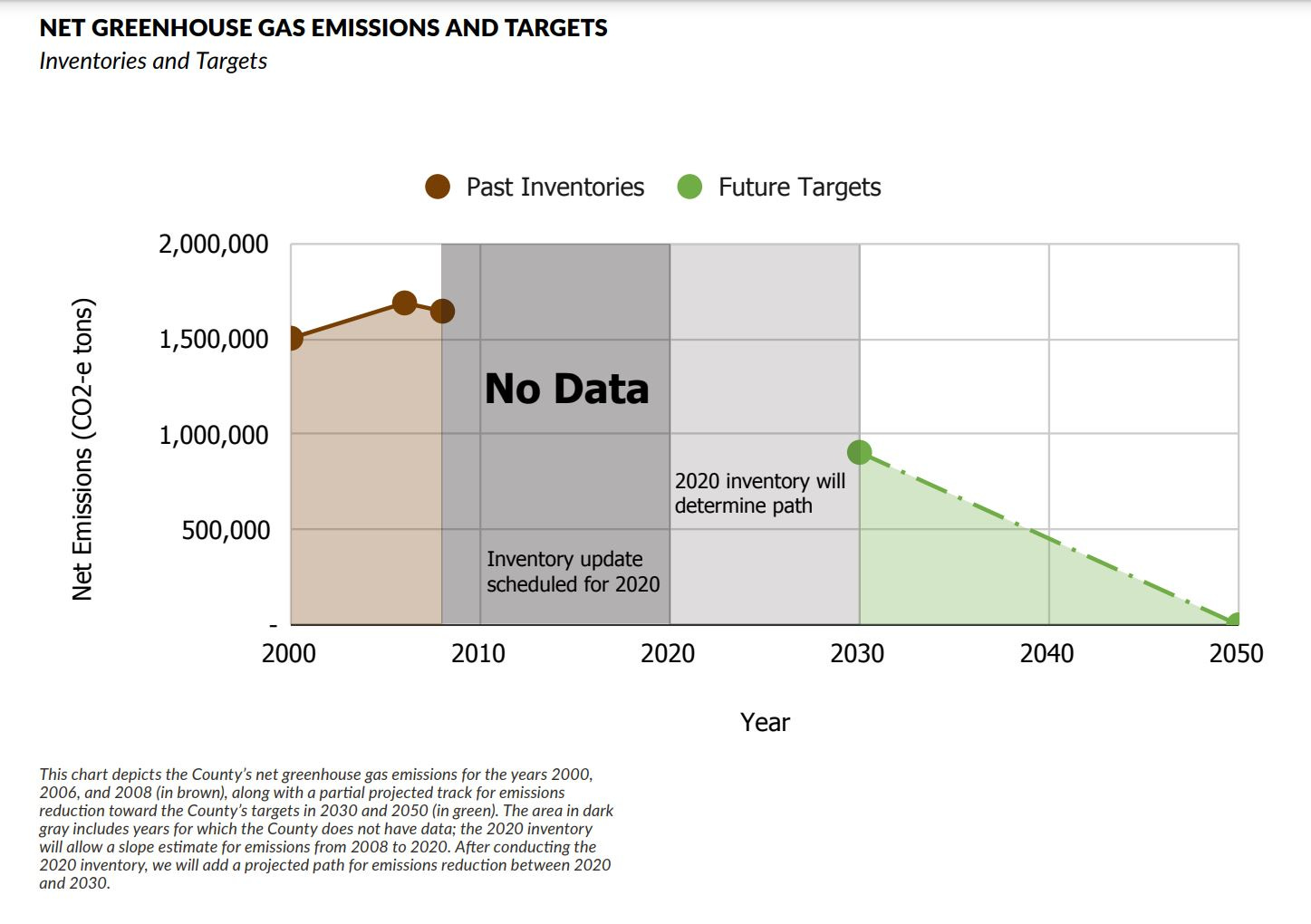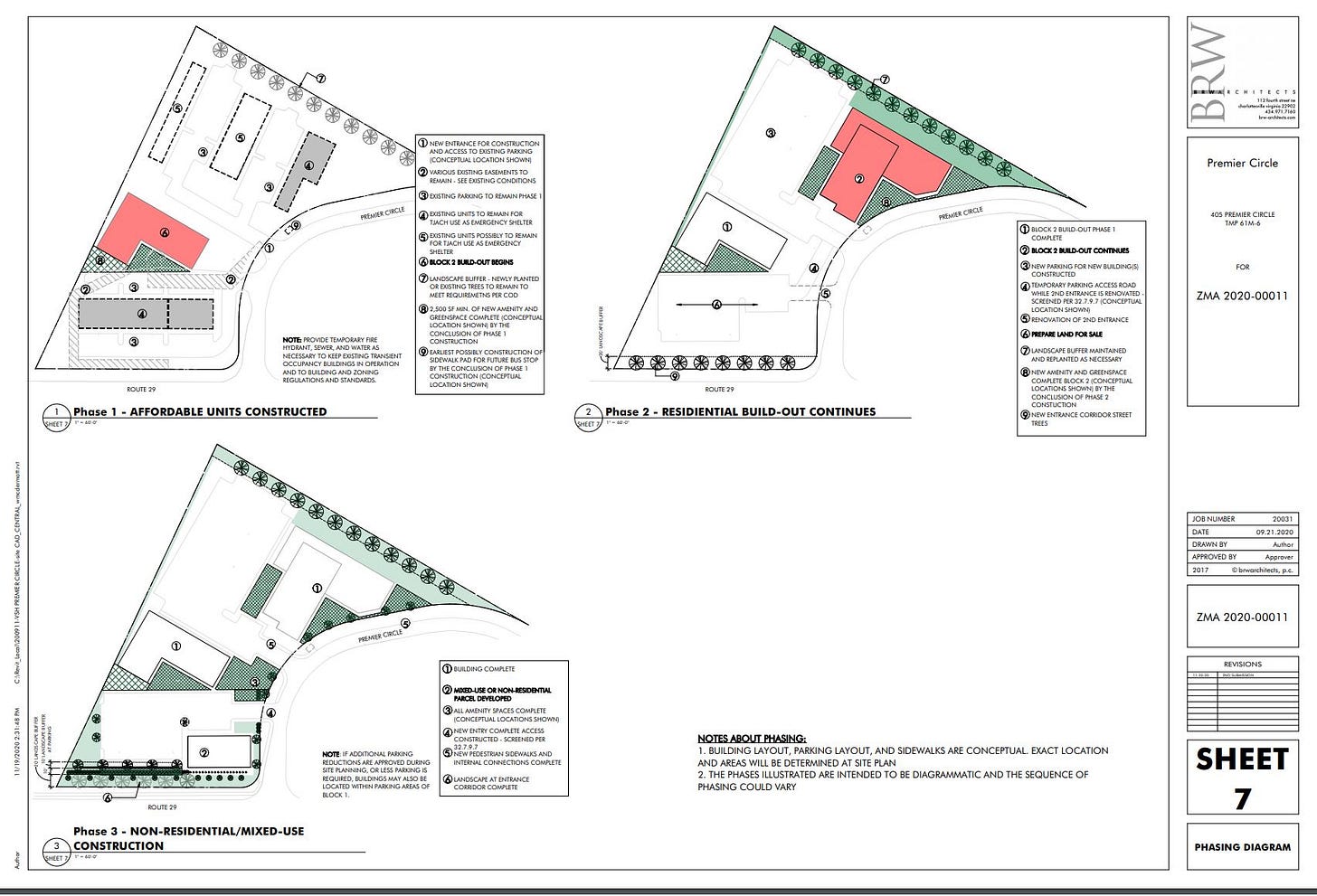This is the last big week of 2020 for local government but even this week is showing the signs of a community at year’s end. A winter storm is forecast for Wednesday, and I think how strange it is that even if the area is blanketed with snow, meetings and school won’t be canceled because most of them are already happening virtually. Strange days, indeed.
In the weeks to come, I’ll be continuing to work and will begin to think about what 2021 might bring in local government. There are local and state elections, and speculation is already mounting for who will run locally. Before then, though, it’s probably a good idea to take stock of this very unusual year and get ready for another one.
As always, thanks to the Piedmont Environmental Council for their ongoing support.
Monday, December 14, 2020
In October, Charlottesville City Council announced the city would follow Albemarle in writing an action plan to help meet the locality’s goal of reducing carbon emissions 45 percent by 2030 and to be carbon neutral by 2050. The Albemarle Board of Supervisors adopted such a plan on October 8.
“The City has adopted a multi-layer engagement approach involving a climate action liaison committee, core topic teams, open community discussion and input opportunities, and small group stakeholder engagement sessions,” reads the announcement of two workshops being held on the plan. “The above structure is intended to leverage technical expertise, local knowledge, existing partnerships, and support within the community.”
That approach echoes the process Albemarle County took to adopt its plan, the first phase of which was two years a year in the making. The subtitle for Albemarle’s document is “a plan to guide local government actions to reduce long-term contributions to climate change throughout the community.” (read the document)
The first of two community workshops for the city’s plan begins at 4 p.m. Participants will get a lesson on where greenhouse gas emissions come from and how sources have been reduced in other communities. (more info)
The University of Virginia has the exact same call. Information about how all three entities are working together is available on a dedicated website.
Some questions for you, the reader. Perhaps not for publication, but I do think this is an issue that needs to be discussed.
- What actions have you personally taken or has your business taken to reduce your greenhouse gas emissions?
- Has the pandemic affected the way you think about this issue?
- What is the appropriate role of government in achieving these goals?

Tuesday, December 15, 2020
There is an ambitious plan to redevelop the Red Carpet Inn on U.S. 29 as a mixed-use development with commercial space and in between 80 and 140 units. In the meantime, the existing rooms in the hotel would be used as transitional housing operated by the Thomas Jefferson Coalition for the Homeless (TJACH). For this to work, the project needs a rezoning of a 3.75 acre property.
The Albemarle Planning Commission holds a public hearing for the Premier Circle project, which is being developed by Virginia Supportive Housing, the Piedmont Housing Alliance, and TJACH. VSH is the organization that in March 2012 opened the Crossings at Fourth and Preston in Charlottesville, a sixty-unit single-room occupancy apartment building aimed at people with very low incomes. The project has been largely considered a success, and efforts have been underway to locate a similar facility that provides support services to help people.
Albemarle planning staff has concerns that there is not enough pedestrian infrastructure to support the high probability that residents will cross U.S. 29, a topic that was raised at a community meeting in October in which several speakers stated they supported the project otherwise. About 54,000 vehicles are estimated by the Virginia Department of Transportation each day at this location. The roadway is six lanes wide. Staff recommends approval but only on several conditions, including that the transportation concerns be addressed.

In other meetings:
- Charlottesville’s second Climate Action Plan Community Workshop is at 10 a.m. (register)
- Charlottesville’s Parking Advisory Panel meets at 3:30 p.m. (meeting info)
- Albemarle Economic Development Authority meets at 4 p.m. (meeting info)
- Charlottesville’s Sister Cities Commission meets at 4:30 p.m. Last week, City Council agreed to pursue a friendship with Huehuetenango, a city in western Guatemala (meeting info)
- Charlottesville’s Board of Architectural Review meets at 5:30 p.m. and will take up an application for an already-approved four-story building at the site of the University Tire on West Main Street. They’ll also have a preliminary discussion on the future parking garage at the corner of Market Street and 9th street. (meeting info)
Wednesday, December 16, 2020
The final meeting of the Albemarle Board of Supervisors for 2021 begins at 1 p.m. This virtual event covers a lot of ground. (agenda)
The first topic is what steps county officials can take to address blighted buildings. This would fulfil a Board strategic priority to find ways to revitalize aging neighborhoods. One of the items in the packet for this topic is a February 2019 memo from county attorney Greg Kamptner that lists what legal ground Albemarle has to order property owners to fix damaged or dilapidated structures.
Next, Supervisors will hold a work session on the proposed form-based code for the area covered by the Rio Road Small Area Plan.
“The Plan establishes a vision and recommendations for transforming Rio29 into a connected, multimodal area with a vibrant, mixed-use community enhanced through conservation and public amenities,” reads the staff memo. “In October, staff conducted a meeting with the Rio29 Steering Committee, and throughout November, staff held meetings with property owners, residents, and key members of the development community to share the draft and receive feedback.”
The draft code is a highly technical document that is purely voluntary, but is intended to streamline the development review process. The idea is to incentivize a more urban form with multi-story buildings as opposed to the single-story commercial shopping centers built in the late 20th century.
To close out the afternoon, there will be a health update from the director of the Thomas Jefferson Health District.
The evening session kicks off at 6 p.m. with a review of 2020. Stay tuned for the video on the county’s YouTube page.
Next, there will be a public hearing on an amendment to two of the county’s Agricultural and Forestal Districts. These are voluntary rural conservation areas where property owners pay lower taxes on their land if they agree to limit development, but there are conditions.
“By voluntarily establishing or joining districts, landowners have committed to continuing rural land uses such as farming or forestry, and agree not to subdivide their land to a more intensive non-agricultural use during the term of the district (with the exception of family subdivisions),” reads information about AFDs on the county’s website.
Then there will be a public hearing on a change to the zoning ordinance related to outdoor storage of materials at industrial scale recycling centers. One of the issues is whether remnants of demolished buildings can be stored outside above a certain height while they are waiting to be processed to be rendered inert. Only inert materials can be buried legally under Albemarle’s code. (staff report)
On the consent agenda is a letter of support for the Thomas Jefferson Foundation’s request for a grant from the Virginia Outdoors Foundation to purchase land to extend the Rivanna River Greenway.
“This riverfront parcel is an approximately 5-acre portion of the larger historic South Lego Farm,” reads the staff report. “Because of its strategic location, it is critically important to the future construction of the County’s long-planned Old Mills Trail extension / Rivanna River Greenway.”
Also on the consent agenda:
In other meetings:
- Charlottesville’s Housing Advisory Committee meets at noon (meeting info)
- The task force overseeing the city’s Community Development Block Grant program’s focus on the Ridge Street neighborhood meets at 4 p.m. (meeting info)
- Charlottesville’s Electoral Board meets at 6 p.m. in the City Hall Annex for an “initial discussion on changing precinct boundaries and relocating some polling places.” (meeting info)
Thursday, December 17, 2020
The Charlottesville Redevelopment and Housing Authority (CRHA) will hold a public hearing at 5 p.m. on their Annual Plan for FY21-22. The 578-page document is required by the U.S. Department of Housing and Urban Development. This is the first one overseen by new CRHA executive director John Sales, who took over what HUD considers to be a “troubled” agency in August. Much of what he has reported to the CRHA Board of Commissioners is within this document, such as the hiring of maintenance workers to speed up the time it takes get a vacant unit ready for new occupants. If you love acronyms and parsing checklists, this is the document for you. (read the draft plan)
In October, Council agreed to move forward with $3 million in capital funds for the redevelopment of Crescent Halls and the construction of new units at South First Street. As part of that condition, the CRHA agreed to produce a financial sustainability plan. That is not this document but if you’re interested in the future of public housing, this is a good place to start. (register for meeting)
Friday, December 18, 2020
No meetings. A week to the big holiday. What are your plans this year?
This post was contributed by Sean Tubbs. Sean is a journalist working to build a new information and news outlet centered around Charlottesville and Virginia. In 2020, he launched a daily newscast and newsletter and also created a semi-regular podcast on the pandemic.
Support for Sean’s “Week Ahead” update comes from The Piedmont Environmental Council.Posted in Albemarle County & the City of Charlottesville
